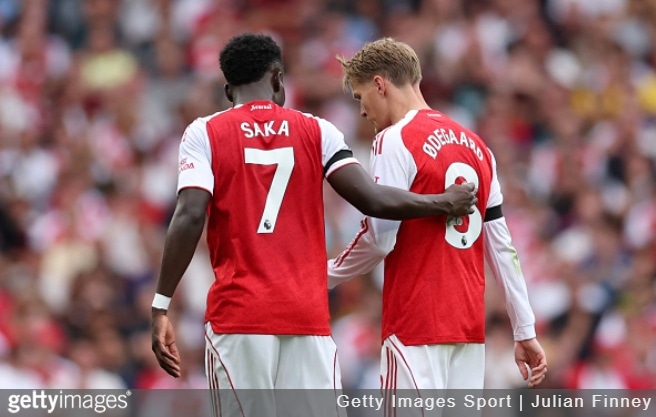Plans to implement a salary cap in the Premier League, potentially the most notable financial reform in its history, appear to have encountered significant challenges. Arsenal, once a supporter of the initiative, has now re-evaluated its stance, joining a growing list of clubs expressing skepticism. This shift threatens to derail a crucial vote scheduled for Friday, which needs a backing from 14 of the clubs to proceed.
What is the proposed salary cap?
The proposed system, known as ‘anchoring’, aims to regulate clubs’ expenditures on player wages, transfer fees, and agent commissions, limiting them to five times the income earned by the lowest Premier League teams from broadcasting and prize money. For instance, during the 2023/24 season, using Sheffield United as a reference point, the spending cap would be approximately £550 million, considering their income of £109.5 million for the season. These measures are intended to reduce financial inequalities, maintain competitive balance, and prevent top teams from gaining even more advantage.
In addition to the anchoring system, the league plans to introduce a team cost ratio (SCR), which will restrict clubs from utilizing more than 85% of their football-related income on salaries and transfer fees, slightly above UEFA’s threshold of 70%. These proposed reforms would replace the existing Profitability and Sustainability Regulations (PSR), which currently permit a loss of £105 million over three years.
Why Arsenal’s position matters
Last year, Arsenal was among 16 clubs that supported the introduction of such financial controls. Their endorsement was largely influenced by former executive vice chairman Tim Lewis, who notably championed the reform. However, Lewis’s departure in September has altered the internal situation at Emirates Stadium. The current management is reportedly more cautious, fearing that strict spending controls could hinder Arsenal’s ability to compete with top European clubs and compromise their recent resurgence under manager Mikel Arteta.
There are indications that Arsenal’s recent summer transfer activity, which included acquiring high-profile players, might not have been feasible under the proposed regulations. Coupled with updated sponsorship guidelines and worries about global competitiveness, there is a growing “nuanced view” of the reform.
Wider opposition: clubs, players, agents
Arsenal’s reevaluation is part of broader dissent. Teams like Manchester United and Manchester City have consistently opposed the anchoring proposal, arguing that it disadvantages English clubs compared to rivals like Real Madrid and PSG, which are not bound by such restrictions. Sir Jim Ratcliffe, co-owner of Manchester United, has criticized the proposal as a “socialist policy” that punishes ambition rather than fostering equality.
The Professional Footballers’ Association (PFA) argues that the cap unlawfully restricts players’ earnings and violates competition laws, threatening legal action. Leading agencies including CAA Base, CAA Stellar, and Wasserman have echoed these concerns, cautioning that unilateral implementation could lead to litigation. Their argument emphasizes that imposing wage limits in some leagues while allowing freedom in others risks driving top talent abroad and undermining the Premier League’s global standing.
Legal and economic implications
Legal challenges are not merely theoretical. In 2021, the PFA successfully overturned the EFL’s salary cap, establishing a precedent that could apply here. Critics of the anchoring system argue that it lacks an international precedent and may be perceived as anti-competitive. Economically, detractors worry that the cap could dampen incentives for investment, curb wage growth, and eventually harm broadcasting revenues, which are essential for the league’s global prominence.
Why votes can collapse
The proposal requires the support of 14 out of 20 clubs, but with Arsenal hesitant and as many as eight clubs reconsidering their positions, reaching an agreement seems increasingly unlikely. Smaller clubs that initially supported the proposal are raising concerns that similar restrictions could be imposed on the Championship, complicating their promotion efforts. At the same time, top clubs are wary of losing their competitive edge in Europe. While the Premier League maintains that these reforms aim to “sustain a balance of values and competition,” the growing opposition suggests that the vote may be abandoned altogether.
The big picture: reform vs. reality
The ongoing salary cap discussions underscore broader tensions within football governance: balancing fiscal sustainability with maintaining global competitiveness. Proponents believe that anchoring would prevent irresponsible spending and safeguard the league’s integrity. On the other hand, opponents argue that it could jeopardize the Premier League’s status as the most lucrative and appealing competition worldwide. Arsenal’s shift in position illustrates this complex dilemma, torn between backing systemic reforms and safeguarding its own ambitions.
Conclusion
Arsenal’s change in perspective has thrown the Premier League’s financial reform efforts into uncertainty. This vote, anticipated as a transformative moment for English football, now risks collapse amid legal threats, economic concerns, and shifting political dynamics. It remains uncertain whether the league can re-establish consensus, or if this situation marks a turning point for the limits of collective governance in an intensely competitive global market. For now, the future of the salary cap hangs in the balance, and Arsenal’s decision may prove pivotal.
Fan Take: This news matters to soccer fans as it highlights the ongoing struggle between financial fairness and competitiveness in leagues. If the salary cap fails, it might further entrench the disparity between elite teams and the rest, risking the integrity and excitement of the sport we all cherish.



